Taxi Watch: Suicide prevention drive that saved 200 lives
- Published
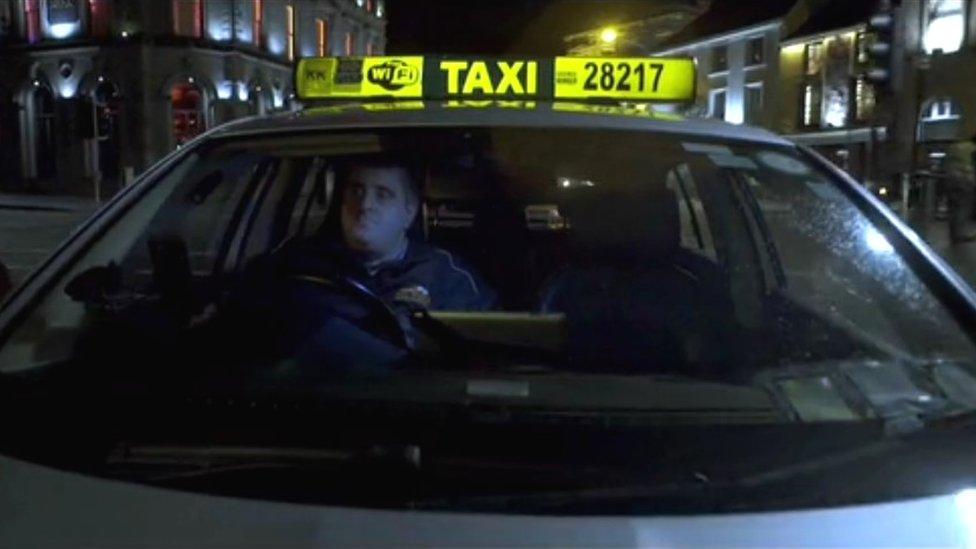
Derek Devoy set up an organisation which has helped to save almost 200 lives
Taxi driver Derek Devoy was leading a secretive double life.
In the mornings, he got out of bed, got dressed and ready for work, but as soon as his wife and children left the house, he went back to bed again.
When his family returned home after school, Derek got up and dressed again, pretending that he had spent the whole time in his taxi, doing a day's work.
He kept up the pretence for eight months, until the bank came calling, threatening to repossess his home.
"As a self-employed taxi driver, if I don't show up for work, I don't earn any money," the County Kilkenny man told BBC News NI.
He admitted he hadn't being paying his mortgage, and hadn't told his wife.
"Lower and lower'
The repossession threat quickly brought matters to a head, and forced Derek to admit to his family for the first time just how far he had sunk into depression.
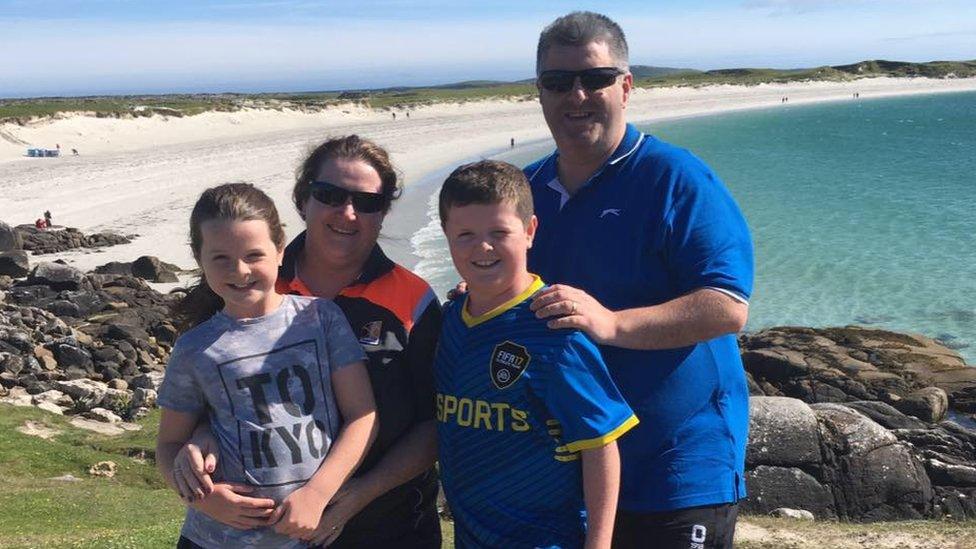
Derek Devoy began to think that his wife and children would be better off without him
For months, he had been struggling to cope with a serious back injury, caused when a drunk driver crashed into the back of his car at a checkpoint.
He underwent a number of rounds of surgery, but said that after each operation, his mental health worsened.
"I just got lower and lower," Derek recalled, adding he spent his days in bed, crying.
Faced with losing his family home, he said he started to think his wife and children would be "better off without me", and made three attempts at suicide.
The morning after his third attempt, he contacted his doctor and finally asked for help to deal with his depression.
Eventually, with medical treatment and counselling, Derek was able to return work.
But on his first night back in his taxi, he saw a distressed man on a bridge in Kilkenny.
He stopped his cab and spoke to the stranger, asking him why he was trying to kill himself.
"He told me the bank was trying to repossess his house," Derek recalled.
Was it coincidence or fate that Derek happened to be passing the bridge at the time? He doesn't know, but he does know he was able to use his own personal experience to help the suicidal man.
He contacted Gardaí (Irish police) for assistance and stayed with the man until they arrived.
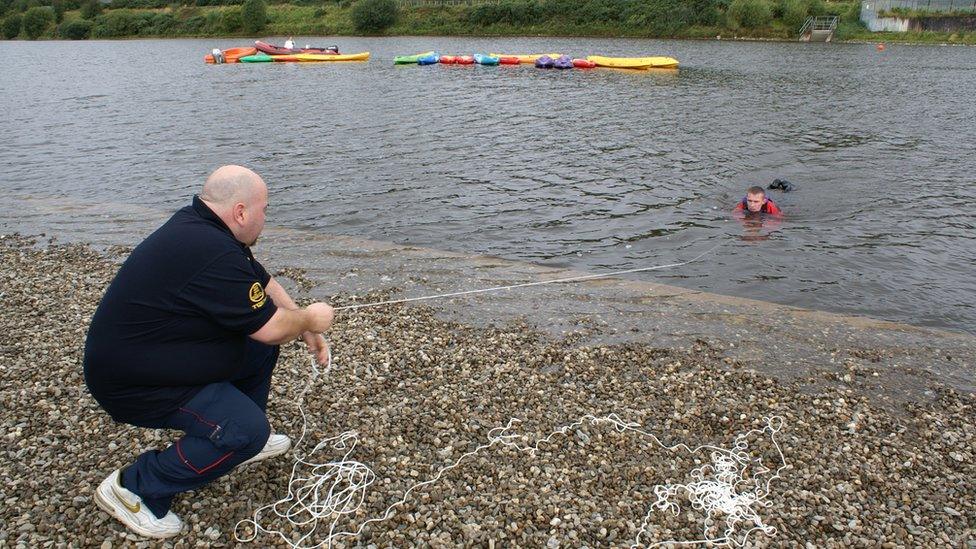
Some years ago, Derry taxi drivers were trained to use throwlines
That same night, about an hour later, he came across a second man who was also threatening to kill himself.
The reason for his distress was a bitter child custody battle.
Derek spoke to the man, explaining that killing himself was the one sure way to guarantee he would not be able to see his child.
'Distressing'
The experience had a deep effect on Derek.
He decided to undergo training, and completed the Applied Suicide Intervention Skills Training (ASIST) course.
Knowing that other taxi drivers must have seen similar sights, he encouraged 15 of his work colleagues to do the course.
The then mayor of Kilkenny allowed them to use his council chamber as a training centre.
The venture became known as Taxi Watch, external - which since its foundation in 2014 has "directly intervened" in almost 200 suicide attempts.
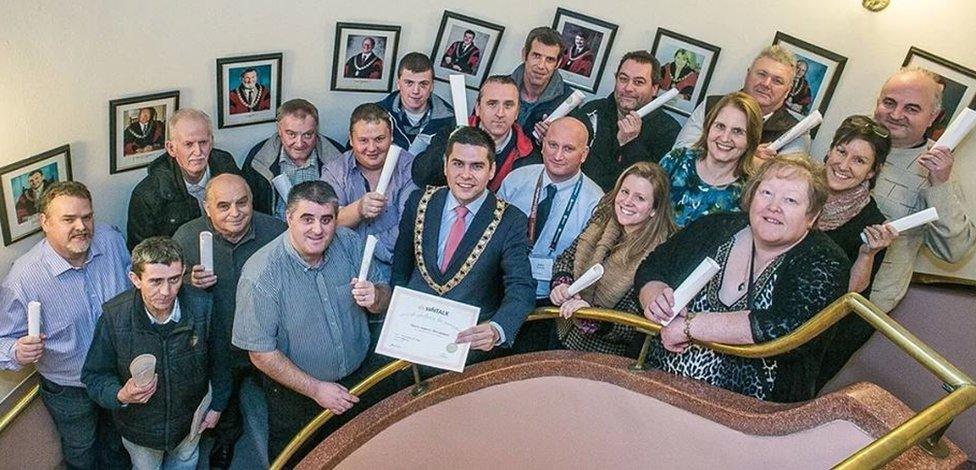
The volunteers were trained in the mayor's chambers in Kilkenny
Derek said that as well as intervening in suicide attempts, Taxi Watch volunteers have helped "hundreds more" to access counselling.
It is not the first time that such a scheme has been introduced on the island of Ireland.
Just over a decade ago, taxi drivers in Londonderry set up a "Taxi Watch" programme, external where drivers were trained in counselling and life-saving skills.
Derek travelled to Derry in 2014 to meet the founders and find out how their scheme operated.
Eamonn O'Donnell, from North West Taxi Proprietors, recalled how Derry drivers came together to take action after witnessing too many "distressing" incidents on the banks of the Foyle.
A local sub-aqua team agreed to train the Derry drivers to use throwlines - to physically rescue people from the river.
"Impressed'
The Derry drivers later moved on to join a "First Responders" scheme, which trained them to use defibrillators and carry out cardiopulmonary resuscitation (CPR).
"It has put taxi drivers at the scenes of collapses before ambulances, and they have joined in with the ambulance teams to resuscitate and help people," Eamonn says.
However, accessing continuous funding has been difficult, and not many self-employed taxi drivers can commit to the demands of regular training.
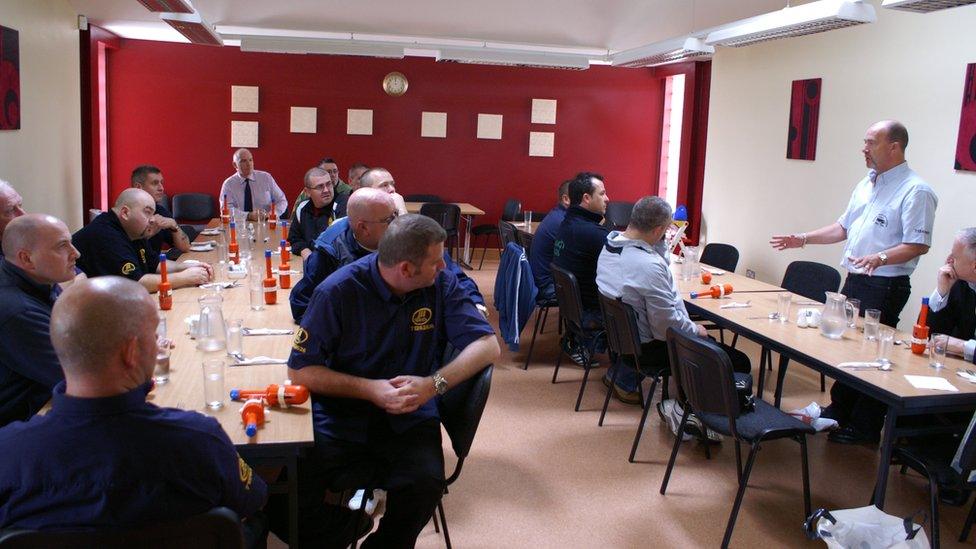
As well as rescue skills, the Derry drivers also received counselling training
Despite their own challenges, Eamonn said he is pleased that the original Taxi Watch model has spread and is "impressed" with the efforts of the Kilkenny drivers.
"It's all part of the same principle of volunteers - with the right equipment they can make an intervention and that intervention can save a life."
In turn, Derek has encouraged taxi drivers in other Irish towns and cities to get involved in counselling.
Award-winning film
In total, there are now about 200 trained volunteers working with Taxi Watch in the Republic of Ireland.
Their story is the subject of an award-winning documentary film - Throwline - and their success has not gone unnoticed in Northern Ireland.
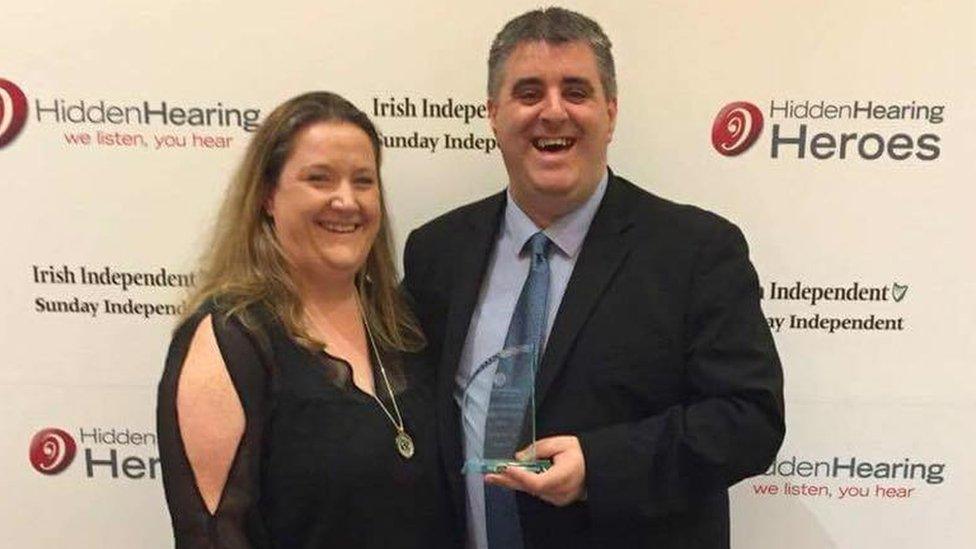
In 2016, Derek was hailed as an "Unsung hero" at a Dublin awards ceremony
The Police Service of Northern Ireland (PSNI), Belfast City Council and the Public Health Agency (PHA) recently met to discuss proposals to set up a similar scheme in Belfast.
No firm plans have been agreed and council and PHA stress the idea is at an "exploratory stage" but Derek has accepted a PSNI invitation to speak to Belfast taxi drivers about his experiences, if it goes ahead.
'Speak out'
Insp Mark Kavanagh said the PSNI would "welcome anything that will empower members of our community and assist us in our core aim of keeping people safe".
In the meantime, Derek is continuing to draw on his personal experience to help people in their darkest moments and said his own history of depression has made him a more effective counsellor.
"People want to know that you've gone through it," he said.
"They don't want to talk to professors. You need people who have been there - and come out the other side - to speak out."
- Published10 October 2017

- Published30 June 2017

- Published7 April 2017
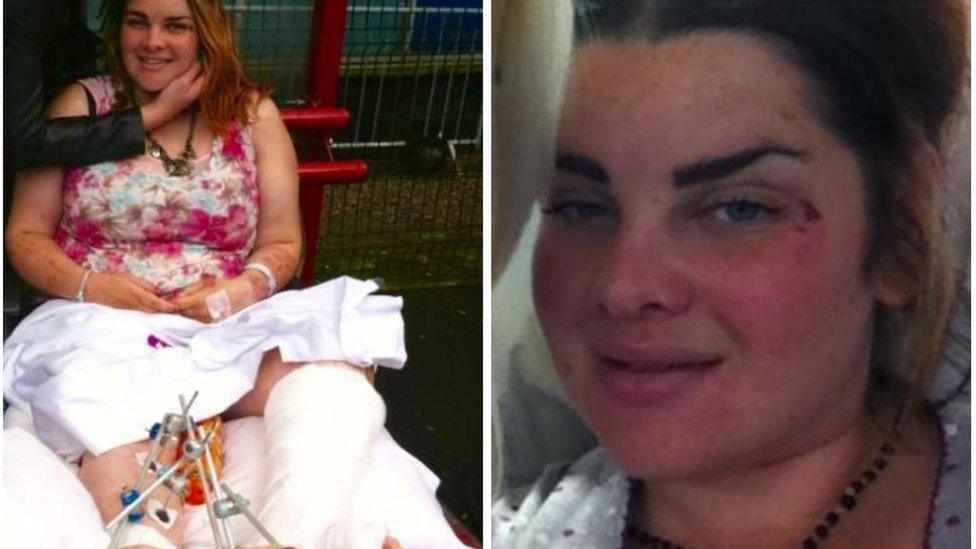
- Published11 November 2016
